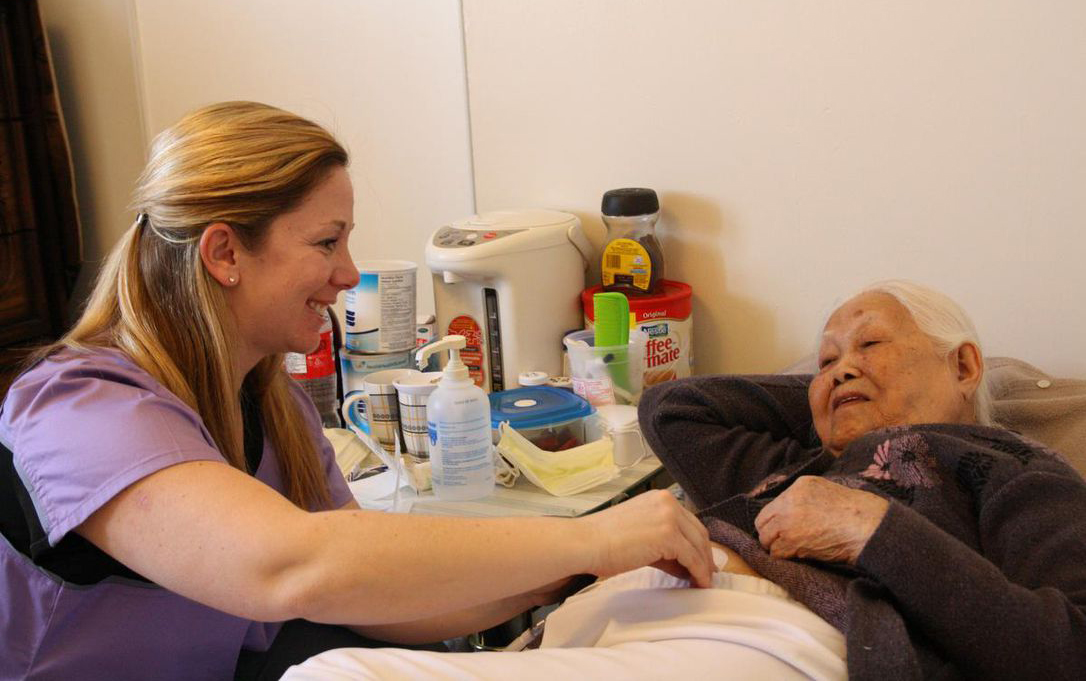
Written by Tristan Bronca on September 11, 2019 for canadianhealthcarenetwork.ca
During our most recent interview, Dr. Bob Bell, Ontario’s former deputy minister of health, was recovering from a hip replacement.
“Where did you get the procedure done,” I asked, innocently.
“The Mayo Clinic,” Dr. Bell joked. “No, I got it done at Toronto Western,” he said, heaping praise, as he so often does, on our Canadian healthcare system. “They’re the best in the world.”
Dr. Bell would know. Not only is he a renowned orthopedic surgeon himself, but as the former head of Toronto’s University Health Network and later as Ontario’s deputy health minister, he’s also visited several of the world’s leading healthcare systems. Recently, he concluded a series examining the merits of seven other national health systems to which Canada is often (unfavourably) compared.
Dr. Bell makes no secret of the fact that that he is a supporter of Canada’s public healthcare system. For this, he has faced some criticism from readers who felt the series was an attempt to diminish its flaws (much of this feedback came from Medical Post readers; links to the articles are all listed at the bottom of the Q&A where you can read the articles and the feedback).
“This was not intended to be an apology for medicare,” he said, adding that there are shortcomings in our system for which excuses can’t be made. But throughout his investigation, Dr. Bell found much evidence to support the argument that private insurance exacerbates problems rather than solves them. Healthcare becomes more expensive, and care for public patients deteriorates when private care is introduced.
For him, none of the feedback he received from physician commenters on the series called those conclusions into doubt, he said. “Physicians are experts at collecting, analysing, publishing and using data and they’ll always be the number one influences in the healthcare system. . . . Nothing is stopping them from doing a similar analysis if they feel we have mischaracterized data.”
When asked at the end of the series if he felt Canada’s health system was the best of the group he examined—”best” defined according to the criteria he investigated—Dr. Bell said he didn’t think so. Other countries have done exceptional work in certain areas of care from which Canada could (and should) benefit. He pointed out that the idea for the widely praised Rapid Access Clinics for spine surgery, now in development in Ontario, was drawn from a successful model first developed in Scandinavia. There is also still much Canada could learn from the British mental healthcare system, he said.
Though he doesn’t agree with the common contention that private care is the solution to our ills, he does agree with those who’ve argued that we can’t be complacent about our shortcomings.
We interviewed Dr. Bell about his motivation for the series, the blind spots in the data, and his findings.
Q: How did you choose the countries that you did?
It was actually looking at some blogs in the Medical Post that made me realize I needed to know more about what was going on in other countries. We selected the first country, Australia, simply because many of your bloggers and commenters had pointed to Australia as the place with the widest penetration of private care (50% at least, have private insurance) and say their system is better than ours. Being the proponent of our single-payer healthcare system that I have been all my career, I thought maybe these guys know something I don’t know. So, we looked at the available data and talked to some experts who know Australia, and it was extraordinarily instructive to do that analysis.
The anecdotal and more quantitative analysis we did showed that privatized care there has been a problem. The move to private insurance has definitely resulted in two-tier medicine and it’s lengthened rather than shortened public wait times. We see the stories in the press about public hospitals competing for private patients to the detriment of public patients. It was the same things I saw as a visiting professor in Australia, when I would go to a clinic and hear my colleagues say “well, I can do your surgery next week if you come on my private hospital list, but if you want to wait on the public hospital list I can’t even give you a date — it’ll be two to three years from now.”
In the other countries, private care accounted for about 10% of patients. So in Germany, the U.K., Sweden about 10% of patients have private insurance coverage. We looked at Kaiser Permanente from the perspective of governance, because it is privately governed. It was interesting to see how they organized their system to maximize profit even though they’re a not-for-profit. Then we looked at Canterbury in New Zealand for a number of reasons, mostly because it (along with Kaiser) it is often cited as an example for Ontario Health Teams. We wanted to look at Germany because it was probably the first modern example of socialized medicine which was developed in the 1870s. It’s remarkable that it still exists the way it does today. We wanted to go to Switzerland because of concerns about co-pays and its impact on access especially for economically marginalized people, and Sweden in part because it’s an interesting system, and in part because it’s the socialized system we all think about.
That was our rationale. We thought about doing Taiwan — Taiwan actually copied the Canadian system in developing its public insurance model, but we were sort of running out of energy at that point. We may look at it in the future.
Q: There were three health systems that seemed conspicuously absent from your analysis: France and Norway were the other ones, in addition to Taiwan…
And Singapore.
Q: Right. Was that a conscious choice not to look at those?
This was not meant to be an exhaustive academic survey. The true purpose was to allow me to test my personal conviction that universal public healthcare is the best option for Canada — to run that premise through a number of different health systems which have private parallel systems. Now, I say this with the understanding that we have lots of private pay in the Canadian system, but I believe publicly funded care for medically necessary services is the best option for Canada.
Q: And based on the last blog of the series, those beliefs seem to have been reinforced. Was there any point in the process that made you question those convictions?
I think the question I was trying to address is: Why does every other system have at least 10% of all their care delivered privately and we don’t? When you actually start to look at the impact private care has, there are so many examples of abhorrent behaviour. You start accepting that access will change based on wealth, and that to me is unacceptable. It’s a philosophical premise, it’s an ethical premise, and it’s one that is fundamental to Canadian healthcare. It also gives us a system that will be more cost-effective in the long run because private pay increases costs in addition to decreasing equitable access, and that’s borne out in each of the systems we looked at.
Q: When you were looking at the data, did you feel that there were any real profound blind spots?
Wouldn’t it be great if every country published its wait time data using the same definitions. There are a variety of sources of information. There are ones that are absolutely unbelievable, like the Fraser Institute, which is politically motivated and uses unvalidated questionnaires to generate the information they want, so I discount that pretty quickly. There are the OECD statistics, that are great but suffer from the fact that the patient experience and access are not well defined. Then there’s the Commonwealth Fund which suffers from the fact that more than 90% of their indicators are survey-based and in various countries those surveys are hugely variable in terms of sample size and completion. So there were no super sources of information that would allow us to determine which health systems were best, so we looked at a bunch of different sources that are organized in different ways.
The most critical thing that is said about Canada is that we wait too long for care. But, in point of fact, that’s not so much true. When you look at the admittedly small number of surgical procedures that are measured by the OECD, we’re sort of the same as the other countries. If you look at cancer times at the NHS, I believe we perform better (I say “I believe” because the times aren’t compared in the same ways and we have to extrapolate data). Plus our cancer survival rates are better than the U.K. If you look at wait times relative to Sweden we’re about the same. New Zealand: we’re about the same. Australia: our public wait times are shorter. Consistent claims that we have a system which prolongs access to services is not true.
Now, there are several systems that don’t have — or don’t list — waits. At Kaiser, you get access to elective surgery* much faster than you do in Ontario, but Kaiser doesn’t insure you past the age of 65. Kaiser is not there for people who have low-income jobs. Kaiser is a middle-class to upper-middle-class system. If you look at the situation in Canterbury in N.Z., waits are much longer for publicly funded patients, and in fact they don’t even list those patients who aren’t going to be accessing surgery within six months. Germany and Switzerland they don’t list wait times, who knows why. But there is some information in the German literature that shows dramatic differences and increasing differences in the time it takes to access services if you do not have private insurance.
[* “Orthopedics is always the thin edge of the private healthcare wedge because the kinds of things that orthropods do — total hip, spine surgery —are the kinds of cleanly defined, elective, often ambulatory surgeries that are absolutely appropriate for private care if you’re going to have a private care system. So orthopedic surgeons are sort of the shock troops of private care. In my opinion, looking at what happened in orthopedic practice in the NHS and Australia etc. there’s great evidence that a single-payer system is fundamental to good access and good musculoskeletal care in the community.”]
So, some of the sources of information are poor, and there’s a lot of extrapolation necessary, but the commentary that comes from Canadian doctors in particular . . . I mean, let’s face it we can always do better, we need to do better, but we’re not that much different than these other systems who have 10% private pay. We could not find evidence for the idea that private pay alleviates the pressure on the public system and reduces wait times.
Read the full series:
- Australia
- England
- Germany
- New Zealand (Canterbury)
- Sweden
- Switzerland
- US (Kaiser Permanente)
- Lessons for Ontario
Edited for length and clarity.
Image Credit: ©AlphaBaby – Can Stock Photo Inc.







